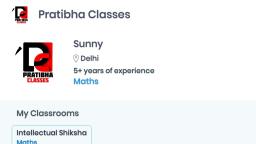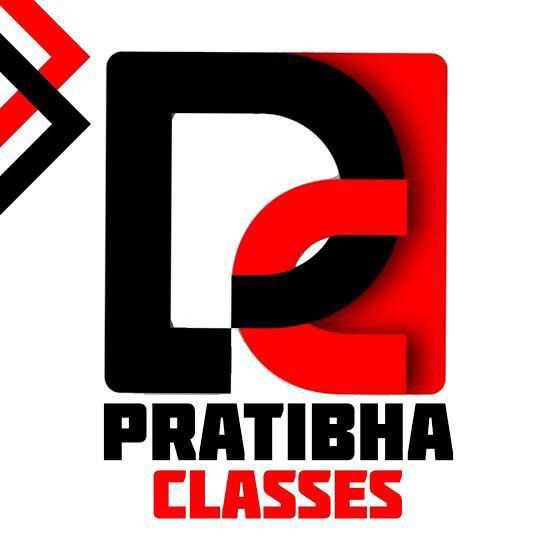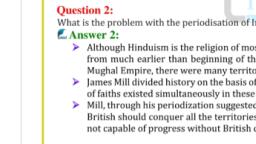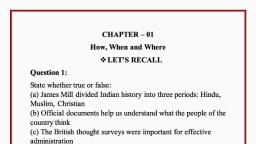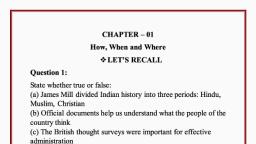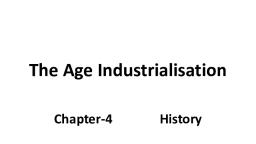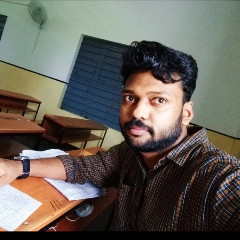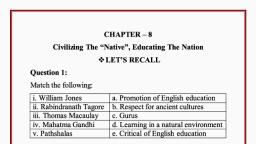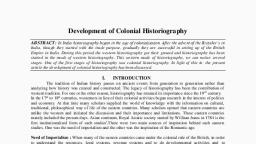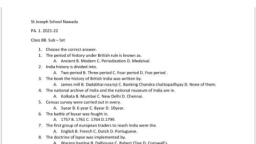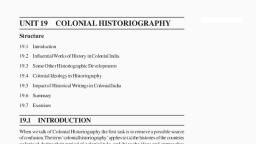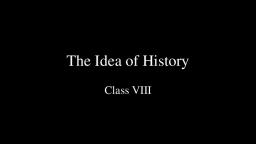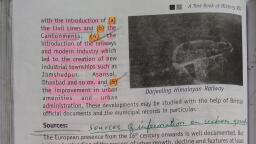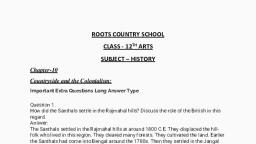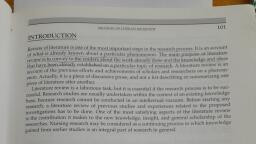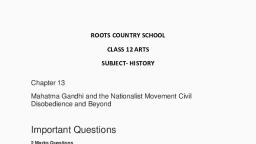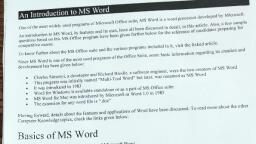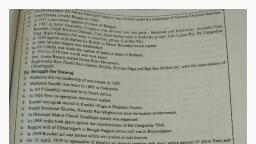Page 1 :
CHAPTER - 01, How, When and Where, “* LET’S RECALL, , Question 1:, , State whether true or false:, , (a) James Mill divided Indian history into three periods: Hindu,, Muslim, Christian, , (b) Official documents help us understand what the people of the, country think, , (c) The British thought surveys were important for effective, administration, , Answer:, (a) (False), , James Mill divided history on the basis of religion of the rulers of, the times. So, he divided Indian history into three periods: Hindu,, Muslim, British., , (b) (False), , Official documents tell us only about what officials thought, what, they were interested in and what they wished to preserve for, posterity., , (c) (True), , The British believed that a country had to be properly known, before it could be effectively administered.
Page 2 :
«* LET’S DISCUSS, , Question 2:, , What is the problems with the periodization of Indian history that, James Mill offers?, , Answer:, , a) James Mill divided history on the basis of the religion of the, tulers of the times. However, a variety of faiths existed, simultaneously in these periods., , b) This periodization ignores the social, political and economic, changes from one era to another. One cannot refer to any era as, the era of any particular religion., , c) The main problem with the periodization of Indian history is, that Mill only looked from the point of the rulers, not from the, point of view of native Indian., , d) Mill, through his periodization, suggested that British rule, could civilize India., , e) Mill even suggested that the British should conquer all the, Indian territories to ensure the enlightenment and happiness of all., He thinks that India was not capable of progress without British, help., , Question 3:, , Why did the British preserve official documents?
Page 3 :
Answer:, , The British preserved official documents due to the following, reasons:, , 1. They liked to have a permanent record of every instruction,, plan, policy, agreement, etc.2. They believed that things could be, properly studied and debated once we had such records.3. This, documentation process provides an administrative culture of, memos, noting and reports.4. The preserved documents could be, used as a point of reference whenever required., , Question 4:, , How will the information historians get from old newspapers be, different from that found in police reports?, , Answer:, , Newspaper reports have nearly always been edited and often, only provide an outline of the events. Note that though old, newspapers can be useful, they are not generally regarded as, reliable sources. However, the information from old newspapers, tells us about the feelings and actions of other (common) people, of the country. However, still, we cannot completely trust on the, reports printed in the newspaper as it may be biased by the view, which is presented by the presenter., , On the other hand, one would expect police reports to be more, detailed, but the information in police reports tells us only about, what officials thought, what they were interested in and what, they wished to preserve for posterity.
Page 4 :
“* LET’S DO, , Question 5:, , Can you think of examples of surveys in your world today? Think, about how toy companies get information about what young, people enjoy playing with or how the government finds out about, the number of the young people in school. What can a historian, derive from such surveys?, , Answer:, , Yes, there are many examples of surveys in world today. The, administrative, botanical and market surveys help to know about, the needs and aspirations of the people., , The government finds out about the information of employees, through the records and reports of school authorities.
